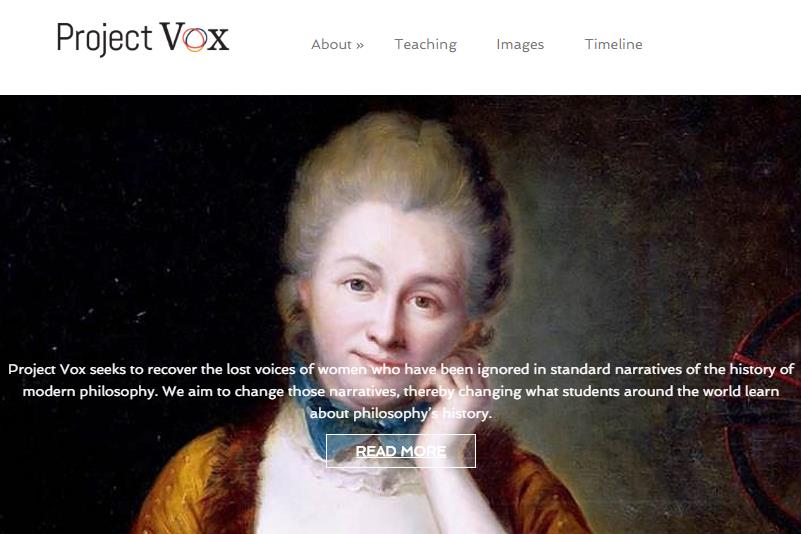By Liz Crisenbery
Ph.D. Candidate in Musicology
 In traditional graduate training, there is often an assumed body of knowledge, various exams to confirm knowledge, and discipline-specific rhetoric. This assumed knowledge is usually a cornerstone of our academic training, contributing to the discourse of one’s field of study. We are held to certain standards, and we are expected to have specialized knowledge. In such an environment, self-perceived lack of core disciplinary knowledge can easily result in impostor syndrome.
In traditional graduate training, there is often an assumed body of knowledge, various exams to confirm knowledge, and discipline-specific rhetoric. This assumed knowledge is usually a cornerstone of our academic training, contributing to the discourse of one’s field of study. We are held to certain standards, and we are expected to have specialized knowledge. In such an environment, self-perceived lack of core disciplinary knowledge can easily result in impostor syndrome.
For humanities graduate students in particular, the expectation of assumed knowledge is also paired with isolation. After I finished coursework, I found myself rarely working with my colleagues, except for an informal writing group. I write my dissertation, conference papers, and blogs by myself. While I rely on colleagues for feedback and edits, my writing is a solitary activity. As a result of this solitary work culture, I often feel like a one-woman team performing multiple roles in the academic world.
Although impostor syndrome and isolation have been part of my own graduate student experience, I was happy to find a very different atmosphere working with digital humanities (DH) projects. The digital humanities provide a space for creative collaboration with a team, bucking the norms of assumed knowledge and isolation.
I was introduced to DH in my second year at Duke, and suddenly I was jumping feet first into a field I knew nothing about, working as a research assistant for the Humanities Writ Large initiative (yikes!). I was both excited and terrified to explore a new field. The learning curve was very steep, and it took some time to adjust to a new set of practices and rhetoric.
——- ♦ ——-
DH focuses on the process rather than the finished project, celebrating both failure and success.
——- ♦ ——-
Digital humanities are a wide ranging and quickly evolving field, making it difficult to define explicitly. Reflecting on my entry into DH, perhaps it was the structural difference that took time to reconcile: DH focuses on the process rather than the finished project, celebrating both failure and success. I realized that I could be successful by failing and trying new methods.
My bosses and colleagues at Duke Libraries Digital Scholarship Services taught me that there is no assumed body of knowledge in the digital humanities. Digital humanists come from a variety of backgrounds, training, and disciplines, and since DH projects involve a team of workers, diverse knowledge is vital to the process. In other words, you don’t need to know everything because you can rely on your team to provide the knowledge you don’t possess. Crucially, you probably already have skills that can easily translate to DH work. I gradually learned to accept that I wasn’t expected to know everything, and I started asking more questions. I began to feel empowered by this renewed curiosity, embracing the unknown and not viewing my lack of knowledge as negative.
Working on Project Vox
 I am currently the project manager for Project Vox, a DH project that focuses on early modern women philosophers who have been excluded from the traditional canon. Since I started with Project Vox in January 2017, our local team has been comprised of about 10 active members. In March we launched new content, adding philosopher Mary Astell to the site.
I am currently the project manager for Project Vox, a DH project that focuses on early modern women philosophers who have been excluded from the traditional canon. Since I started with Project Vox in January 2017, our local team has been comprised of about 10 active members. In March we launched new content, adding philosopher Mary Astell to the site.
My work includes long-term and short-term planning, creating agendas for weekly team meetings, making sure everyone is on the same page, creating a publishing workflow, and contributing to grant applications. Working on a project that falls outside of my academic training as a musicologist has taught me that I don’t need to be a subject specialist in order to be a productive team member.
Project management is something I never considered before entering into DH, and as a humanist, I couldn’t envision many opportunities to manage a project. However, my bosses at Digital Scholarship Services, Liz Milewicz and Will Shaw, showed me that I could be a successful project manager. I’ve gained management skills and learned to value skills I already have. Being in a collaborative environment without the burden of assumed knowledge has transformed my graduate student experience. While I still have long stretches of solitary work researching and writing, I can be a part of an interdisciplinary team with DH projects. I’ve been empowered by working on such a team, feeling less pressure to know everything and being more at ease with the things I don’t know.
If you’re curious to learn more about DH at Duke, check out the Digital Humanities Initiative.
Liz Crisenbery is a Ph.D. candidate in musicology at Duke University. Her research examines opera, politics, and masculinity in Mussolini’s Third Rome. She was awarded a James B. Duke International Research Travel Fellowship for 2017-18 to conduct archival research in Italy. Her work as project manager for Project Vox is facilitated by Digital Scholarship Services and supported by the Humanities Writ Large.
